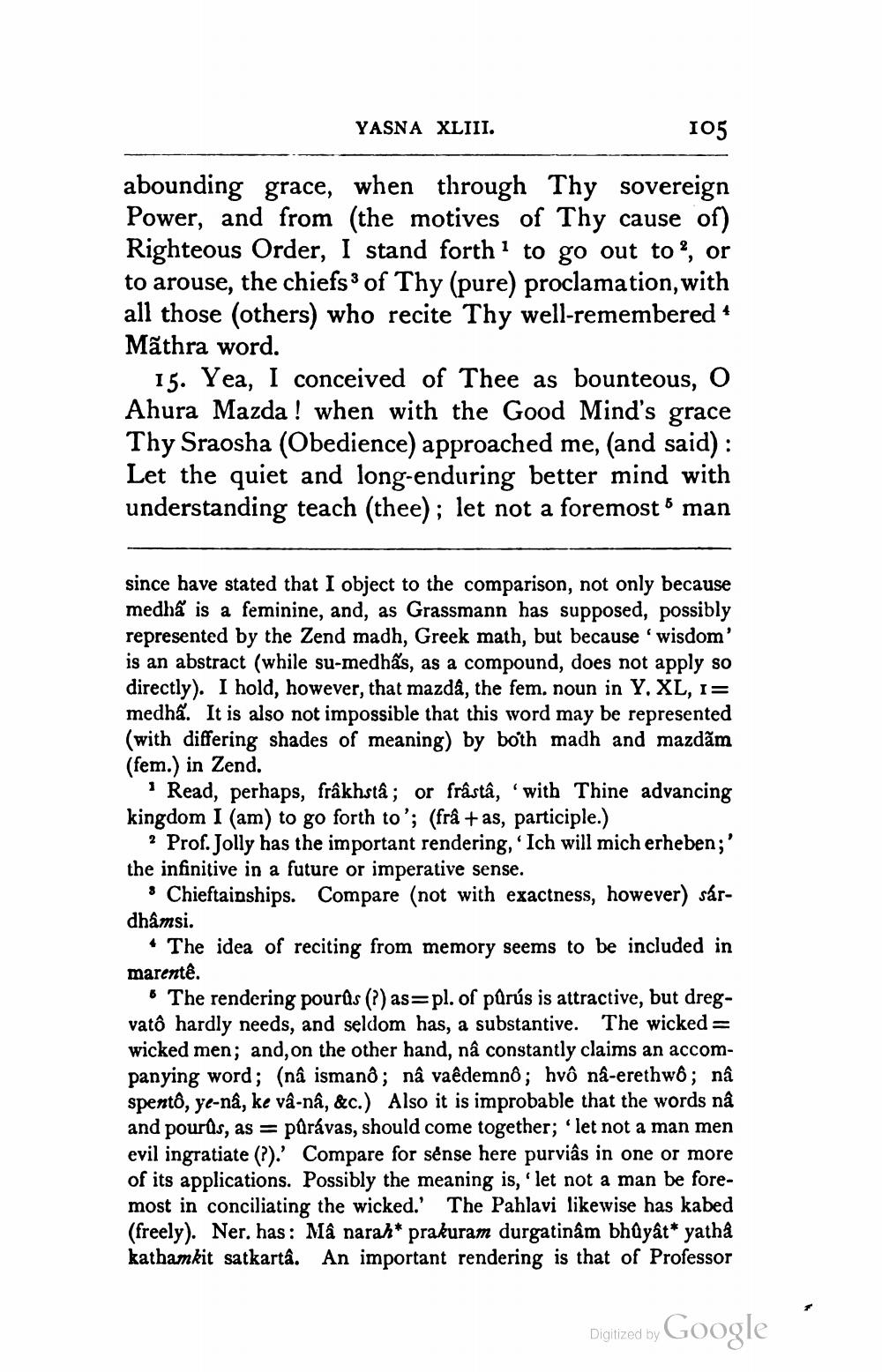________________
YASNA XLIII.
105
abounding grace, when through Thy sovereign Power, and from the motives of Thy cause of) Righteous Order, I stand forth? to go out to ?, or to arouse, the chiefs of Thy (pure) proclamation, with all those (others) who recite Thy well-remembered Mãthra word.
15. Yea, I conceived of Thee as bounteous, O Ahura Mazda! when with the Good Mind's grace Thy Sraosha (Obedience) approached me, (and said) : Let the quiet and long-enduring better mind with understanding teach (thee); let not a foremost man
since have stated that I object to the comparison, not only because medha is a feminine, and, as Grassmann has supposed, possibly represented by the Zend madh, Greek math, but because 'wisdom' is an abstract (while su-medhấs, as a compound, does not apply so directly). I hold, however, that mazda, the fem. noun in Y. XL, I= medha. It is also not impossible that this word may be represented (with differing shades of meaning) by both madh and mazdām (fem.) in Zend.
Read, perhaps, frâkhsta; or frâstâ, with Thine advancing kingdom I (am) to go forth to'; (frå +as, participle.)
? Prof. Jolly has the important rendering, 'Ich will mich erheben;' the infinitive in a future or imperative sense.
o Chieftainships. Compare (not with exactness, however) sárdhamsi.
• The idea of reciting from memory seems to be included in marentê.
o The rendering pourûs (?) as=pl. of půrús is attractive, but dregvatô hardly needs, and seldom has, a substantive. The wicked = wicked men; and, on the other hand, na constantly claims an accompanying word; (nå ismano; nâ vaêdemno; hvô na-erethw6; nâ spentô, ye-nâ, ke vâ-nâ, &c.) Also it is improbable that the words na and pourûs, as = půrávas, should come together; 'let not a man men evil ingratiate (?). Compare for sense here purviâs in one or more of its applications. Possibly the meaning is,' let not a man be foremost in conciliating the wicked.' The Pahlavi likewise has kabed (freely). Ner, has : Må narah* prakuram durgatinâm bhủyât* yathå kathamkit satkartâ. An important rendering is that of Professor
Digitized by
Digitized by Google




